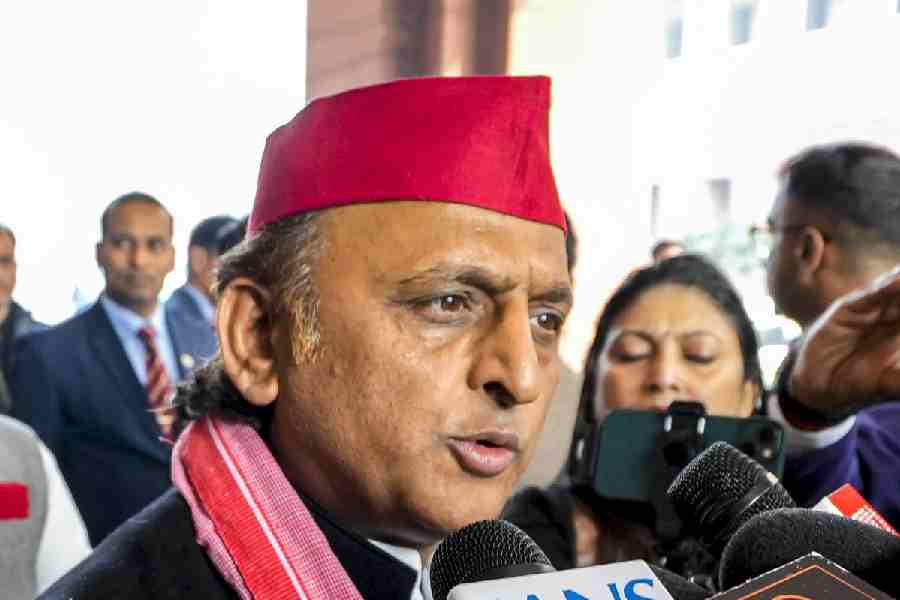 |
 |
 |
| To B&B or not to B &B: (Above) The entrance to Arun Kuckreja’s home and (below) Kuckreja gets cosy in one of his guestrooms. Pix: Prem Singh |
Breakfast at 50-year-old Renu Dayal’s apartment is a feast. Low-cholesterol butter, Nutella, potato pancakes, cornflakes, jams, jellies, cheese omelettes, toast and masala tea — the spread couldn’t get better than this. And, of course, you can always get aloo-poori on request.
The breakfast is part of Dayal’s bed-and-breakfast (B and B) establishment, an age-old western concept that is now catching on in India. Tourism is being boosted and B and Bs are being seen in some quarters as an answer to overbooked hotels. In Delhi, for instance, every inch of space seems to be booked for the 2010 Commonwealth Games. And that includes your extra bedroom.
In fact, the Union ministry of tourism wants the extra space in your house to play an active role in the run-up to the games and the ensuing demand for space. With increasing international and domestic tourist traffic, the metros are already grappling with a serious space crunch. Since January 2007, 14,21,007 foreign tourists have stepped into this country. The ministry launched the “Incredible India Bed and Breakfast Establishments” scheme in September last year, hoping that home owners’ initiatives would allay the crisis. The scheme is aimed at the low-budget traveller, who is here to experience the ‘Indian way of living’.
“We are expecting the scheme to generate up to 15,000 rooms by the time of the Commonwealth Games,” says Gaur Kanjilal, executive director, Indian Association of Tour Operators. Currently, the National Capital Region is running short of 30,000 rooms.
But six months after the central scheme was launched, it’s clear that demand still outstrips supply. While there is interest and money to be earned, people are not exactly tripping over one another to rent out their rooms.
The central scheme is not a new one. The 1982 Asian Games also fostered a similar scheme, though the licences awarded at that time were valid for only two years. Kanjilal adds that even after the expiry of licences many kept running their businesses.
Many state tourism departments too launched their schemes in the early 2000s. Delhi’s tourism department also has a similar scheme, known as the Paying Guest Residential Accommodation (PGRA), which has been running for over five years now. Such enterprises have been running from behind tree-lined avenues at posh Delhi addresses.
B and B establishments seem to be doing fairly well in states such as Maharashtra, Tamil Nadu, Rajasthan and Kerala. Tamil Nadu introduced its scheme in 2001 and till now it has registered about 200 B and Bs; Maharashtra has 188. Kerala’s homestays and houseboat accommodation have also been around for a long time. “On my lane alone, there are scores of B and Bs. It’s very common here,” says P.T. Joseph, who runs a six-room B and B in Alleppey, Kerala.
But the numbers still don’t match government expectations. The Union ministry anticipates a whirlwind response to the scheme, but the crowds are still to queue up. Since the scheme’s inception, 155 establishments have been approved across the country and some 50 applications are pending. “But we are not disturbed by the numbers. It will take off slowly,” says M.N. Javed, deputy director general, ministry of tourism.
Not surprisingly, the existing ones are doing good business. Dayal’s B and B, which mostly hosts foreign guests, is occupied up to 85 per cent in peak season. With an asking rate of Rs 2,000-Rs 2,300 a night, it’s a pretty neat package. For some, it’s a good retirement idea, as it is for single women who want to work from home. And for Arun Kuckreja, a well-known theatre personality whose B and B has just been certified in the gold category, it was a good bail-out from a loss-making 20-room hotel in Chandni Chowk. Now immensely happy with the success of his three-year-old B and B, he says, “A hotel has to have a minimum of 10 rooms but why should I (run one), when I get the same turnover in five rooms?”
While setting up a profitable B and B might sound simple enough, ferreting out tourists to stay there is a tough call. Most rely on travel agents and tour agencies to refer guests. Others depend on websites for bookings. Dayal, who runs a two-room B and B from a modest Vasant Kunj apartment, gets all her guests via her website or reference, and Kuckreja relies on the neighbouring Oberoi Maidens Hotel to refer guests it cannot accommodate. Som Dutt, who runs a B and B on Roshanara Road in north Delhi, depends on his network with Japanese tourists.
From business to leisure to medical tourism and religious tourists, B and Bs are open for bookings. “I also get British tourists, whose ancestors are buried in India,” adds Dayal.
The central scheme, in the meanwhile, is hoping to put up a directory of B and Bs on its website to make it easier for tourists to book. The ministry will charge a nominal commission of 5 to 6 per cent for each booking.
While registration with the Union ministry is not mandatory, it does make the process much easier for entrepreneurs. “It saves people a lot of legal hassles with the municipal authorities and the police as the inspection committee takes care of all that,” says Kuckreja.
For someone like Dayal, though, the fun is in the details. For long years, she confesses that her problem was her home-made bread that tended to fall flat. “But thanks to a Swiss guest, I now know how to bake bread,” she says gleefully. And, clearly, home-baked bread now vies with the pooris on her well-laden breakfast table.










